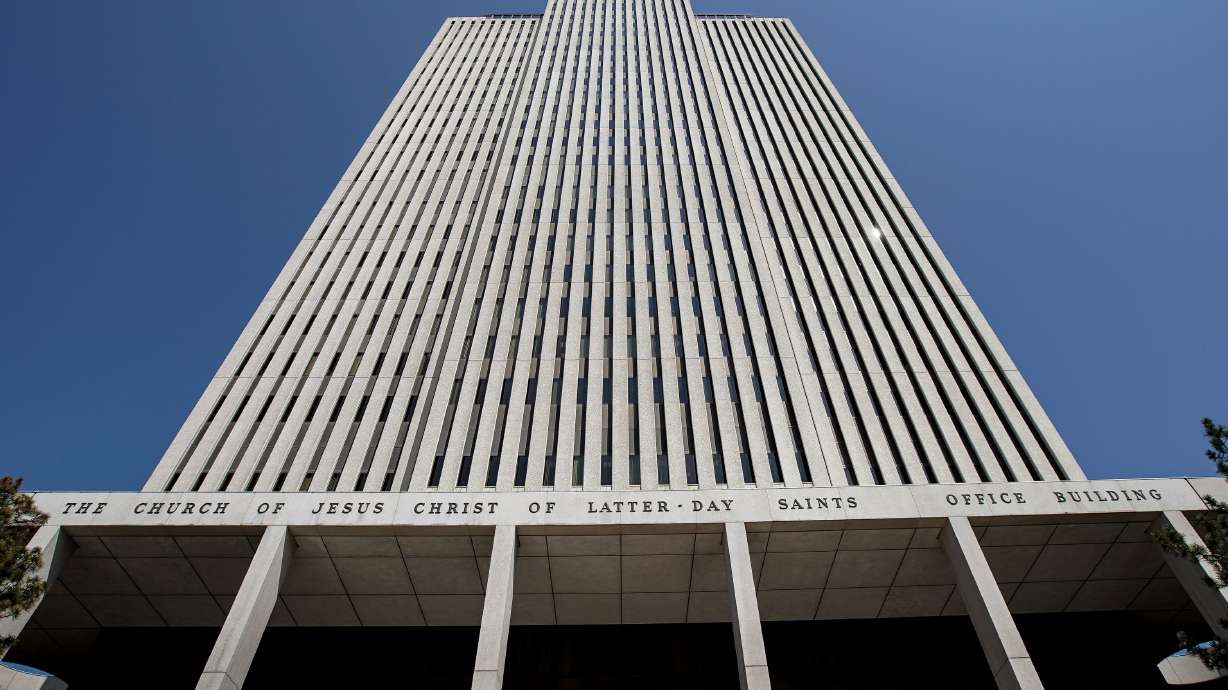Estimated read time: 3-4 minutes
This archived news story is available only for your personal, non-commercial use. Information in the story may be outdated or superseded by additional information. Reading or replaying the story in its archived form does not constitute a republication of the story.
SALT LAKE CITY — A media report Friday afternoon alleged that the U.S. Securities and Exchange Commission is investigating the way an investment firm for The Church of Jesus Christ of Latter-day Saints disclosed its stock holdings prior to 2020.
The SEC is focused on whether Ensign Peak Advisors Inc. complied with disclosure requirements for large investment managers, according to the report by the Wall Street Journal.
The SEC's Office of Public Affairs did not immediately respond to messages Friday afternoon seeking information about whether an investigation exists or not. However, the Journal reported that anonymous sources said the investigation is at an advanced stage and is likely to be settled soon.
A spokesperson for the church and Ensign Peak declined to answer questions about the report of an investigation.
"The church works with many government regulators to ensure we are in compliance with the law," spokesman Doug Andersen said. "We take those responsibilities very seriously."
Ensign Peak is a 501(c)(3) nonprofit entity that invests the church's financial reserves.
The church transfers surplus funds each year to Ensign Peak to invest for a rainy day, the church's Presiding Bishopric told the Deseret News in 2020.
David A. Nielsen, a former Ensign Peak employee, filed an IRS complaint in November 2019, alleging the church, a non-profit organization, should be forced to pay taxes on returns made from invested tithing funds. Nielsen also challenged the faith's tax-exemption status.
Independent tax experts repeatedly have told publications the IRS is unlikely to act on the complaint. The income derived from invested tithing funds is tax-exempt because Ensign Peak is what the IRS calls an integrated auxiliary and supporting organization of The Church of Jesus Christ of Latter-day Saints. Nonprofit groups, including religious organizations, are exempted from paying taxes on income in the United States.
Nielsen has continued to seek action. As a potential whistleblower, he possibly stands to win a percentage of fines or back taxes imposed by the IRS or SEC.
Last month, Nielsen reportedly asked the U.S. Senate Finance Committee to investigate whether Ensign Peak made false statements to the IRS about the size of its assets and whether it held foreign bank accounts, the Journal reported.
Nielsen alleged in his 2019 IRS complaint that Ensign Peak held more than $100 billion in investments for the church. Investment firms with at least $100 million under management publicly report their stockholdings quarterly, according to the Journal. Ensign Peak subsidiaries reported their holdings until February 2020, when Ensign Peak began reporting quarterly as a single entity via the SEC's 13-F form.
In its latest filing, Ensign Peak reported $40.2 billion in U.S. stock holdings. Ensign Peak has other investment holdings, including farms and real estate.
The Journal said SEC regulators don't have to prove an organization intended to violate disclosure rules. A simple failure to file the required 13-F form, or omitting information, is enough to trigger a violation, the financial newspaper said.
The church preaches fiscal management to its members, advising them to set budgets and save money. It practices what it preaches as an organization, church leaders say. The church's decades-long policy is to never spend more in a year than it receives in tithing and to set aside a portion each year for reserves, according to the Presiding Bishopric, which oversees church finances.
In recent years the church has spent about $1 billion a year to provide humanitarian aid and another $1 billion a year to subsidize and operate educational institutions like Brigham Young University, in addition to maintaining meetinghouses and a growing list of temples around the world.
"There will be future downturns," Bishop W. Christopher Waddell, now first counselor in the Presiding Bishopric, said in 2020. "How extensive, how dramatic we don't know. But ... if that were to happen, because of the reserves being carefully watched over, protected and wisely handled, we won't have to stop missionary work, we won't have to stop maintaining buildings and building temples, we won't have to stop humanitarian and welfare work, we won't have to stop education work."









